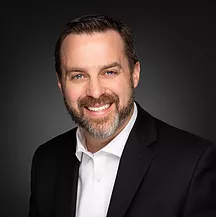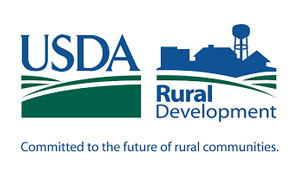North Carolina's Historic $835M Behavioral-Health Investment
In honor of World Mental Health Day, the North Carolina Department of Health & Human Services announced a significant financial commitment of $835...
6 min read
 Travis LeFever
May 5, 2021 11:15:00 AM
Travis LeFever
May 5, 2021 11:15:00 AM

Starting a mobile medical clinic? Learn the easy way from these most common mistakes that mobile medical clinics make so you can start and run your business effectively.
Demand for mobile medical services continues to rise. More medical professionals than ever are considering what it takes to establish their own mobile medical practice. Mobile medical clinics and mobile dental clinics can be very profitable, allow you to reach more clients than ever, and contribute to your overall business mission.
Starting a mobile medical program, or adding a mobile component to your established practice, is a huge venture. While it can be incredibly rewarding, both financially and emotionally, there is a lot to consider.
Learn from these common mistakes so you can hit the ground running, and so you don’t have to make them yourself.
You may be excellent with medicine, patients, and a whole lot of other things that go into running a successful practice. Starting your own practice, though, requires skills you may not have. Running a business means wearing a ton of different hats. Instead of being a doctor or dentist, you now are a business owner. Congratulations! But with this comes a ton of things you may not be aware of, and certainly things that you may not have even considered!
You can’t start a practice overnight. Having realistic expectations will save you money, time, and headaches. Plan for things taking longer than you think they will. For instance:
Know what to expect by keeping your expectations in check. Things won’t happen overnight and you won’t be good at everything. You may be an expert on filling cavities or diagnosing medical conditions, but may not be the best at marketing. And that is okay. Knowing when to ask for help is a crucial part of owning a business.
Avoid the mistake of unrealistic expectations by bringing on people who know how to start and run a business. Having the correct staff can help you avoid common problems and variables that you may not have even thought of.
Your practice will feel much like a baby- one you care about deeply and want to see grow and thrive. Just like it takes a village to raise a child, it takes more than a great medical practitioner to start mobile health clinics.
One mistake that many new mobile dental clinics and mobile health clinics make is underestimating the enrollment process and licensing procedures. Do your research to make sure you are ready to start your own mobile health clinic.
Enrollment
It can take months for new mobile health clinics and mobile dental clinics to become enrolled in insurance and Medicare. It is very important to understand the insurance enrollment process. You cannot count on insurance until you are properly enrolled, and that is not a process that happens overnight.
Underestimating enrollment and licensing procedures means lost revenue and lost opportunities to treat patients who need health and dental care the most.
Decide what kind of insurance you would like to accept, and then take care to follow the procedures for enrolling. Oftentimes, enrollment could take anywhere from 30 to 120 days, so plan accordingly!
Don’t forget about Medicare! Mobile health clinics often work in low income communities so they can provide medical and dental care to the most vulnerable members of society. As such, it’s important to make sure that you enroll your clinic in Medicare. Physicians, non-physician practitioners, and other Part B suppliers must enroll in the Medicare Program to be eligible to receive Medicare payment for covered services provided to Medicare beneficiaries.
When you are ready to enroll, visit the Provider-Supplier Enrollment web page to access and download a paper Medicare enrollment application.
Licensing
As a medical professional, you already know how important it is to adhere to local, state, and federal laws. Be sure to make sure you know all of the local and state regulations to make sure your mobile health clinic is in compliance. Being out of compliance not only risks your business, but can affect your medical or dental license as well.
Some regulations consist of audits, insurance plans, and licensing. It can be overwhelming. Consulting with state and county government officials can help to make sure you are in regulation and understand licensing requirements, laws, and practices. If in doubt, you can potentially save a lot of money, time, and headaches by working with a lawyer who specializes in business and medical law.
One of the biggest mistakes owners make when starting mobile medical clinics is choosing the wrong vehicle. It is essential to choose the right vehicle that can accommodate everything you need to efficiently run your business.
Think about now and where you want to be in a few years. Choose a vehicle that you need to practice now, but also consider the health needs of your community that are likely to arise in the near-future. Your vehicle will last a while with proper maintenance, so make sure you choose something to grow with you!
By following these tips, you can ensure that you choose the right vehicle to meet all of your needs for your mobile medical clinic or mobile dental clinic.
Choose your platform
One of the first things you will want to determine is what platform that you want for your mobile medical units. You can choose a semi tractor trailer truck, motor-coach, or van. Select a platform that meets all of your needs. Make sure there is enough space for logistics that you need to practice medicine. To get the most out of your budget, consider using a refurbished or pre-owned mobile medical vehicle.
Safety is Key
You need a vehicle that is safe. Providing medical care is a responsibility, and so safety must be a priority. Customer built generators, safety interlocks, and temperature control are all important factors. Make sure whichever vehicle you choose is safe and in good working order. Money can be saved in many different parts of your operation- but safety is not a place to skimp on.
Reliable Vehicles to Keep your Practice Moving
Make sure you choose a durable vehicle in good shape. Not only will you save money on frequent servicing and maintenance, you will have less downtime during working hours. This ensures you spend more time doing what matters most- serving your patients and your communities.
Many physicians or dentists dream of starting their own practices. When you finally decide to go for it and start your own practice, it’s important to consider the costs. Mobile medical clinics or mobile dental clinics can be quite expensive. But with great risk can come great reward, so planning wisely is key to success.
Practitioners and owners will need to consider a number of factors that contribute to overall cost. One of the top reasons businesses fail is having unexpected costs and not having enough cash flow or financing to cover them.
It’s wise to hope for the best but prepare for the worst. Having a realistic and conservative 3 to 5 year projection of costs and revenue is recommended, as well as cash flow and a line of credit for the first 3 months of beginning the practice.
It can be difficult to determine initial revenues the first few months because of an unreliable patient volume and issues with pay and insurance careers, so planning conservatively can help make sure that your practice brings in enough money.
There are ways to reduce costs, such as buying pre-owned vehicles and medical equipment. Shopping around for the best insurance policy, supplies, and deals can also help save money. The goal is to reduce overhead where possible and build up a reliable stream of clients to have regular revenue.
Like any business, it is so important to hire the right people. You have to work with people who are efficient, good at their jobs, and that you trust.
Hiring the wrong staff is expensive for many reasons.
The effects of hiring the wrong people aren’t just financial. They can affect productivity and the entire team! All members of the team will feel the effects because it can put more strain on them. Furthermore, a bad hire can affect morale.
It is incredibly important to work with people you can trust. To avoid the mistake of hiring the wrong people, find staff that are invested in the same dream you have- exceptional patient care and a successful practice. Take your time, screen employees well, and make sure that both the candidate and your mobile health practice are a good fit together.
Not working with the right partner can really hurt your business. Remember how important it is to pick staff that believe in your dreams and values? The same is the case with choosing who you work with for one of the most important parts of your mobile health clinic- your vehicle. You need to work with partners who care about your mission, mobile health clinic, and patients.
Mission Mobile Medical is more than the country’s only licensed mobile medical vehicle and dental trailer dealer.
We have a mission to help mobile medical clinics and mobile dental clinics better leverage their resources, so that your money does more. We believe in your business. We’re passionate about helping providers who care about helping their community. We don’t just sell products- we believe in being partners. That means offering our time, talents, and knowledge to give you the options and information you need. We don’t stop after a bill of sale. We are there for our partners throughout their journey- just like you are.
Mission Mobile Medical provides world class mobile medical units built on pre-owned platforms so you can save money and have your dream mobile clinic. Our mobile health clinics are backed by a 10 year warranty and dynamic preventive maintenance. We'll be there with you every step of the way, so you can focus on what you do best- serving patients.
If you are looking for information on how to start a mobile medical program, click here to read The Ultimate Guide to Starting a Mobile Medical Program.

In honor of World Mental Health Day, the North Carolina Department of Health & Human Services announced a significant financial commitment of $835...

Healthcare is a basic necessity of life, but unfortunately, underserved communities and populations often face barriers that prevent them from...

The U.S. Department of Agriculture (USDA) has made a significant move towards strengthening healthcare services in rural Oklahoma. Through the...